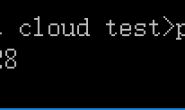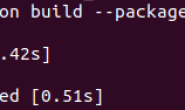简单的代码来创建和使用公共/私人密钥对
# coding=utf-8
from __future__ import division, absolute_import, print_function
from base64 import b64encode
from fractions import gcd
from random import randrange
from collections import namedtuple
from math import log
from binascii import hexlify, unhexlify
import sys
PY3 = sys.version_info[0] == 3
if PY3:
binary_type = bytes
range_func = range
else:
binary_type = str
range_func = xrange
def is_prime(n, k=30):
# http://en.wikipedia.org/wiki/Miller%E2%80%93Rabin_primality_test
if n <= 3:
return n == 2 or n == 3
neg_one = n - 1
# write n-1 as 2^s*d where d is odd
s, d = 0, neg_one
while not d & 1:
s, d = s + 1, d >> 1
assert 2 ** s * d == neg_one and d & 1
for _ in range_func(k):
a = randrange(2, neg_one)
x = pow(a, d, n)
if x in (1, neg_one):
continue
for _ in range_func(s - 1):
x = x ** 2 % n
if x == 1:
return False
if x == neg_one:
break
else:
return False
return True
def randprime(n=10 ** 8):
p = 1
while not is_prime(p):
p = randrange(n)
return p
def multinv(modulus, value):
"""
Multiplicative inverse in a given modulus
>>> multinv(191, 138)
18
>>> multinv(191, 38)
186
>>> multinv(120, 23)
47
"""
# http://en.wikipedia.org/wiki/Extended_Euclidean_algorithm
x, lastx = 0, 1
a, b = modulus, value
while b:
a, q, b = b, a // b, a % b
x, lastx = lastx - q * x, x
result = (1 - lastx * modulus) // value
if result < 0:
result += modulus
assert 0 <= result < modulus and value * result % modulus == 1
return result
KeyPair = namedtuple('KeyPair', 'public private')
Key = namedtuple('Key', 'exponent modulus')
def keygen(n, public=None):
""" Generate public and private keys from primes up to N.
Optionally, specify the public key exponent (65537 is popular choice).
>>> pubkey, privkey = keygen(2**64)
>>> msg = 123456789012345
>>> coded = pow(msg, *pubkey)
>>> plain = pow(coded, *privkey)
>>> assert msg == plain
"""
# http://en.wikipedia.org/wiki/RSA
prime1 = randprime(n)
prime2 = randprime(n)
composite = prime1 * prime2
totient = (prime1 - 1) * (prime2 - 1)
if public is None:
private = None
while True:
private = randrange(totient)
if gcd(private, totient) == 1:
break
public = multinv(totient, private)
else:
private = multinv(totient, public)
assert public * private % totient == gcd(public, totient) == gcd(private, totient) == 1
assert pow(pow(1234567, public, composite), private, composite) == 1234567
return KeyPair(Key(public, composite), Key(private, composite))
def encode(msg, pubkey, verbose=False):
chunksize = int(log(pubkey.modulus, 256))
outchunk = chunksize + 1
outfmt = '%%0%dx' % (outchunk * 2,)
bmsg = msg if isinstance(msg, binary_type) else msg.encode('utf-8')
result = []
for start in range_func(0, len(bmsg), chunksize):
chunk = bmsg[start:start + chunksize]
chunk += b'\x00' * (chunksize - len(chunk))
plain = int(hexlify(chunk), 16)
coded = pow(plain, *pubkey)
bcoded = unhexlify((outfmt % coded).encode())
if verbose:
print('Encode:', chunksize, chunk, plain, coded, bcoded)
result.append(bcoded)
return b''.join(result)
def decode(bcipher, privkey, verbose=False):
chunksize = int(log(privkey.modulus, 256))
outchunk = chunksize + 1
outfmt = '%%0%dx' % (chunksize * 2,)
result = []
for start in range_func(0, len(bcipher), outchunk):
bcoded = bcipher[start: start + outchunk]
coded = int(hexlify(bcoded), 16)
plain = pow(coded, *privkey)
chunk = unhexlify((outfmt % plain).encode())
if verbose:
print('Decode:', chunksize, chunk, plain, coded, bcoded)
result.append(chunk)
return b''.join(result).rstrip(b'\x00').decode('utf-8')
def key_to_str(key):
"""
Convert `Key` to string representation
>>> key_to_str(Key(50476910741469568741791652650587163073, 95419691922573224706255222482923256353))
'25f97fd801214cdc163796f8a43289c1:47c92a08bc374e96c7af66eb141d7a21'
"""
return ':'.join((('%%0%dx' % ((int(log(number, 256)) + 1) * 2)) % number) for number in key)
def str_to_key(key_str):
"""
Convert string representation to `Key` (assuming valid input)
>>> (str_to_key('25f97fd801214cdc163796f8a43289c1:47c92a08bc374e96c7af66eb141d7a21') ==
... Key(exponent=50476910741469568741791652650587163073, modulus=95419691922573224706255222482923256353))
True
"""
return Key(*(int(number, 16) for number in key_str.split(':')))
def main():
import doctest
print(doctest.testmod())
pubkey, privkey = keygen(2 ** 64)
msg = u'the quick brown fox jumped over the lazy dog ® ⌀'
h = encode(msg, pubkey, True)
p = decode(h, privkey, True)
print('-' * 20)
print('message:', msg)
print('encoded:', b64encode(h).decode())
print('decoded:', p)
print('private key:', key_to_str(privkey))
print('public key:', key_to_str(pubkey))
if __name__ == '__main__':
main()
Working RSA crypto functions with a rudimentary interface. Currently, it is good enough to generate valid key/pairs and demonstrate the algorithm in a way that makes it easy to run experiments and to learn how it works.
This is an early draft. Future updates will include:
saving and loading keys in a standard file format
more advanced encoder/decoder
stricter tests for allowable primes
preprocessor with compression/padding/salting
possible command-line interface




